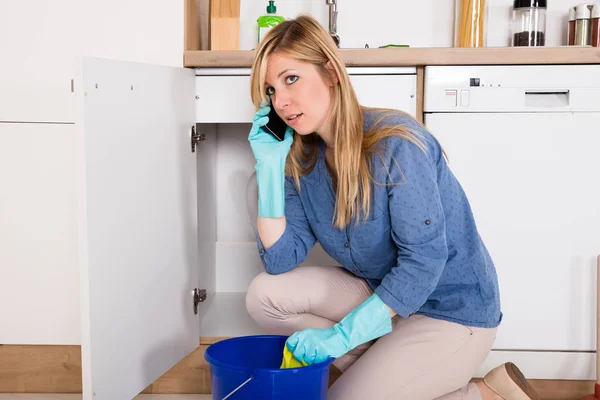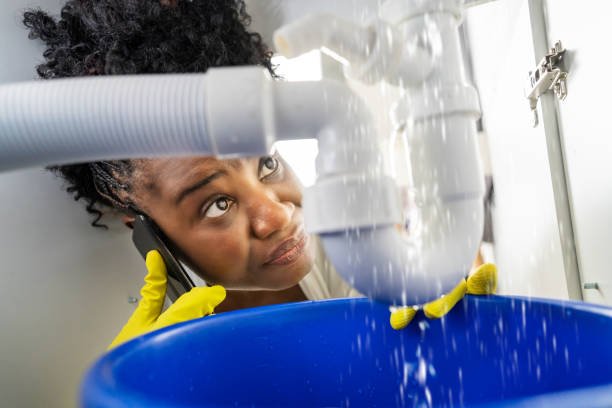Quick Fixes for Urgent Plumbing Issues: What to Do Until Support Arrives
Quick Fixes for Urgent Plumbing Issues: What to Do Until Support Arrives
Blog Article
Almost everyone is bound to have his or her own opinion involving Expert Tips for Managing a Plumbing Emergency Until Help Arrives.

Plumbing emergency situations can strike any time, causing anxiety and prospective damages to your home. Whether it's a burst pipe, a clogged up drain, or a leaky faucet, understanding just how to manage the situation up until a specialist plumbing professional arrives can save you from additional difficulties. This article supplies necessary emergency situation pipes tips to aid you mitigate damage and gain back control throughout a pipes situation.
Shut off the Water Supply
The initial step in any kind of plumbing emergency situation is to shut off the water. For localized concerns, such as a dripping faucet or bathroom, turn off the shutoff near the fixture. When it comes to a major leakage or burst pipeline, locate your home's major water shut-off valve and transform it off instantly. Understanding the area of these valves ahead of time can save beneficial time during an emergency situation.
Address Small Leaks with Short-lived Solutions
Small leakages can quickly end up being substantial issues if left uncontrolled. Use these short-lived fixes up until professional assistance arrives:
While these solutions aren't irreversible, they can aid minimize water loss and damage.
Unclog Drains Safely
A stopped up drain can be a discouraging and unpleasant concern. Below's just how to tackle it:
If these approaches don't work, stay clear of making use of excessive force, as it might get worse the blockage.
Manage Overflowing Toilets
An overruning commode can create immediate mayhem. Right here's what you need to do:
Shut Off Your Hot Water Heater
In specific emergencies, such as a ruptured pipe, it's wise to shut down your water heater. This protects against getting too hot or damage to the system when water stops moving. Turn off the power supply to the water heater (electric or gas) and let it cool to stay clear of prospective risks.
Temporarily Quit a Ruptured Pipeline
A burst pipe can bring about substantial water damage in minutes. To minimize the concern:
Call an expert plumbing quickly to attend to the problem completely.
Manage Frozen Pipeline Carefully
In chillier climates, frozen pipelines are a typical emergency situation. If you think an icy pipe:
Prevent Additional Damages
Taking quick activity to minimize damage can conserve you time and money over time. Right here's just how:
. Have an Emergency Situation Pipes Kit
Prepare a fundamental pipes emergency set to take care of minor problems properly. Your kit ought to consist of:
Having these devices accessible can make a significant difference in your capability to take care of emergencies.
Know When to Call an Expert.
While quick fixes can assist momentarily, particular plumbing problems need prompt professional attention. Call a plumbing technician if:.
Quickly getting in touch with a professional ensures the concern is solved properly and prevents more difficulties.
Final thought.
Plumbing emergencies can be frustrating, however with the best knowledge and tools, you can take care of the circumstance efficiently until aid arrives. By turning off the water supply, addressing small leaks, and using temporary fixes, you can minimize damages and maintain your home safe. Bear in mind, these suggestions are short-term services; always consult a licensed plumber to handle the origin of the trouble. Prep work and quick thinking are your best allies in any type of plumbing emergency situation.
Expert Tips for Emergency Plumbing Repairs
Plumbing emergencies can be incredibly stressful and inconvenient. Whether it’s a burst pipe, a clogged drain, or a leaky faucet, these common plumbing emergencies need immediate attention to prevent further damage to your home. But before you panic, it’s important to understand the basics of plumbing repairs and the steps you can take to address these emergencies. In this article, we will share some expert tips to help you navigate through these situations and minimize potential water damage.
Identifying Common Plumbing Emergencies
Leaky pipes and faucets Clogged drains and toilets Burst pipes Low water pressure Water heater problems Essential Tools for Plumbing Repairs
Plunger: Useful for unclogging toilets and drains Adjustable wrench: Needed for tightening or loosening nuts and bolts Pipe wrench: Ideal for gripping and turning pipes Tape measure: Necessary for accurate pipe measurements Plumber’s tape: Helps create watertight seals Understanding Emergency Plumbing Services
Emergency plumbing services are designed to provide immediate assistance for unexpected plumbing issues that can cause significant damage to your home, business, or health. These services are typically available 24/7 and are staffed by experienced plumbers who can quickly diagnose and repair a wide range of plumbing problems.
When a plumbing emergency strikes, time is of the essence. Whether it’s a burst pipe flooding your basement or a gas leak posing a serious risk, emergency plumbing services ensure that help is just a phone call away. These professionals are equipped with the tools and expertise to handle any situation, minimizing damage and restoring your plumbing system to proper working order.
What Constitutes a Plumbing Emergency?
Burst pipes or water supply lines: These can cause extensive water damage and need immediate repair to prevent flooding. Gas leaks or suspected gas leaks: Gas leaks are extremely dangerous and require prompt attention to avoid potential explosions or health hazards. Sewer backups or overflows: These can lead to unsanitary conditions and significant property damage. Clogged drains or toilets causing water to overflow: Overflowing water can damage floors, walls, and other structures. Leaks or water damage causing structural damage: Persistent leaks can weaken the structural integrity of your home or business. No hot water or heating: A lack of hot water can be more than an inconvenience, especially in colder months. Common Causes of Plumbing Emergencies
Aging or corroded pipes: Over time, pipes can deteriorate, leading to leaks or bursts. Improperly installed or maintained plumbing fixtures: Faulty installations or lack of maintenance can result in unexpected failures. Tree roots or other debris infiltrating your sewer line: Roots can grow into pipes, causing blockages and backups. Frozen pipes or water supply lines: In colder climates, pipes can freeze and burst, leading to significant water damage. High water pressure or sudden changes in water pressure: Excessive pressure can strain pipes and fixtures, causing them to fail. Natural disasters such as floods or earthquakes: These events can disrupt your plumbing system and cause severe damage. Steps to Minimize Water Damage
Locate the water shut-off valve: Knowing where the valve is can help you quickly cut off the water supply to the affected area. Turn off the water heater: If there’s a risk of water coming into contact with the heating element, make sure to turn off the water heater to avoid potential accidents. Open faucets and drain pipes: By opening faucets and drain pipes, you can relieve pressure and empty any standing water. Collect and contain water: Use towels, buckets, or bins to collect water and prevent it from spreading to other areas of your home. https://leecountyplumbingandwellservice.com/expert-tips-for-emergency-plumbing-repairs/

I discovered that review on What to Do During a Plumbing Emergency while doing a search on the search engines. For those who liked our blog posting if you please consider to pass it around. Thank you for being here. Return soon.
Browse Website Report this page